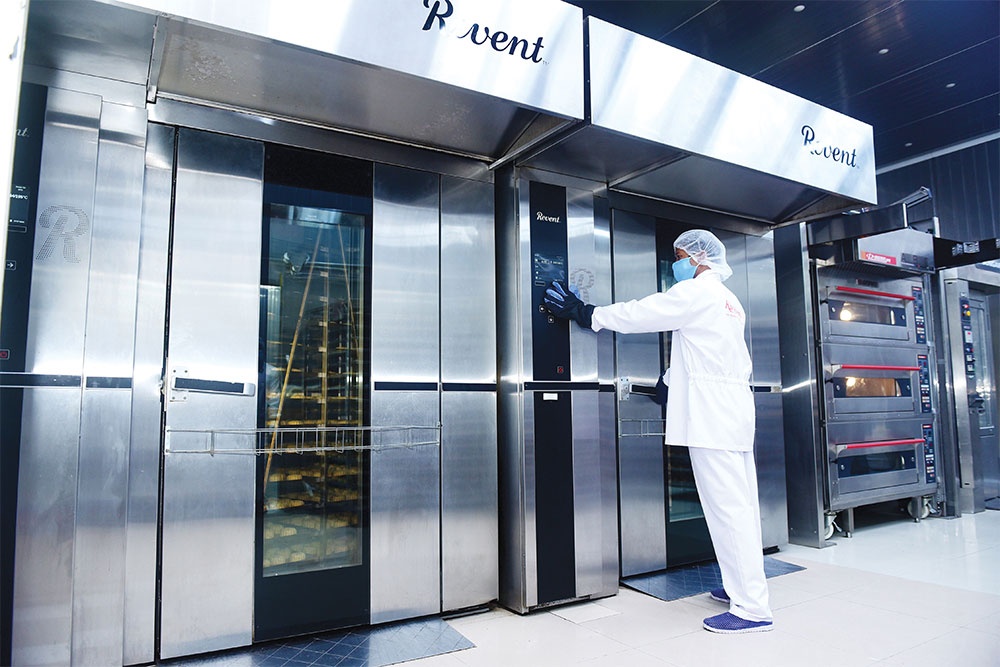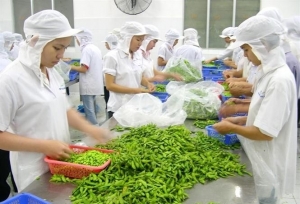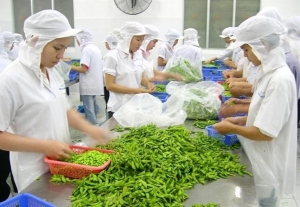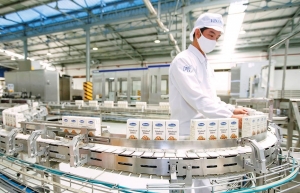Food groups leaning into greener funding
 |
| Food groups leaning into greener funding, Le Toan |
Vinamilk, Vietnam’s top dairy manufacturer, was ranked second in the top 100 most valuable brands in Vietnam by Brand Finance last week.
The company is currently on the list of the top 40 largest dairy companies globally in terms of revenue, according to Plimsoll Statistics in the UK, and Brand Finance gave it a brand value of $2.8 billion.
Brand Finance’s managing director for Asia-Pacific Alex Haigh said, “Vinamilk, through its sustainability initiatives, has effectively raised a strong awareness of its sustainability commitment among stakeholders, as demonstrated by its highest Sustainability Perceptions Score.”
The ability to create added value from business activities has helped Vinamilk maintain its reputation and solid position in the Vietnamese dairy industry throughout its development journey of nearly half a century.
However, in addition to its business imprints, this food brand also continuously invests in technology and green solutions in the system of farms and production plants, showing its commitment and efforts to a long-term sustainable development strategy.
Bui Thi Huong, chief officer for HR, Administration, and External Relations at Vinamilk, emphasised that 13 farms and 10 factories of the enterprise have installed solar energy, promoting the use of green energy such as biomass and biogas.
“Almost 90 per cent of the farm’s energy comes from renewable sources, while 15-20 per cent of the farm’s electricity comes from solar power,” Huong said.
Vinamilk has also made investments to maintain a system of modern farms meeting international standards such as Global G.A.P and Organic Europe, dairy farming oriented towards sustainable agriculture. In parallel with the measures to reduce greenhouse gases, the company also planted one million trees in Vietnam.
Climate change has created risks for food and beverage businesses, disrupting supply chains and reducing raw material supplies. As a result, feed companies like GREENFEED Vietnam are also pushing towards more sustainable strategic production and business activities.
Its sustainability director Pham Tuan Anh said, “Agriculture is a field with specific production activities and is affected by climate change. Therefore, the company determines that transitioning to a circular economy model is urgent to ensure long-term development of the corporation.”
GREENFEED Vietnam is currently implementing strategic programmes on farm operations, green factories, waste, emissions and energy management, applying environmental, social, and governance risk management criteria to the entire feed-food-farm plus chain.
“We promote the development of modern, closed farms with automatic feeding and drinking systems to reduce food and water waste. The output waste from livestock farms, including wastewater and solid waste, is also applied with treatment models to recover and convert into input products for other processes,” Anh added.
This process has helped the company save production costs, labour, and transportation costs, such as reducing 800 tonnes of packaging plastic in the animal feed industry and meeting 50-80 per cent of the farm’s electricity demand.
According to information from the Vietnam Chamber of Commerce and Industry (VCCI), the circular economy generates about $4-5 trillion per year and brings many new job opportunities for workers through new business models.
“Green transformation and green development are part of the roadmap towards the future. This is an inevitable trend not only in Vietnam but also in the world,” said Nguyen Quang Vinh, vice president of the VCCI.
“As a supporter of sustainable business development for 20 years, I realise that the awareness of businesses and government agencies about sustainable development and green growth has improved recently, but the most difficult challenge in the transition is still green finance.”
Limited resources for investment are preventing businesses from converting business models to a more sustainable direction. Some 57 per cent of businesses consider green transformation necessary, while 70 per cent have not taken steps to implement activities towards sustainable development, according to the Vietnam Trade Promotion Agency under the Ministry of Industry and Trade.
“We look forward to more promotion mechanisms from agencies in adding resources for green capital and supporting tech transfer, said Anh from GREENFEED. “We also want to see obstacles removed in admin procedures to support units that are performing well or have a clear roadmap for reducing emissions. This can promote pioneering businesses and create motivation for others to work towards net-zero.”
 | Food firms face tough times Many food businesses are finding it hard to source capital amid the persistent wave of interest rate spikes and a growing concern that many businesses may not make it through the current tough time. |
 | Still tough times for food businesses High interest rates, difficult access to capital sources, and supply and demand threats all hinder the rebound efforts of businesses, including those in the food sector. |
 | Food businesses seeking brand new growth engines A number of food enterprises are restructuring and looking for more growth drivers. |
What the stars mean:
★ Poor ★ ★ Promising ★★★ Good ★★★★ Very good ★★★★★ Exceptional
Related Contents
Latest News
More News
- Masan Consumer names new deputy CEO to drive foods and beverages growth (February 23, 2026 | 20:52)
- Myriad risks ahead, but ones Vietnam can confront (February 20, 2026 | 15:02)
- Vietnam making the leap into AI and semiconductors (February 20, 2026 | 09:37)
- Funding must be activated for semiconductor success (February 20, 2026 | 09:20)
- Resilience as new benchmark for smarter infrastructure (February 19, 2026 | 20:35)
- A golden time to shine within ASEAN (February 19, 2026 | 20:22)
- Vietnam’s pivotal year for advancing sustainability (February 19, 2026 | 08:44)
- Strengthening the core role of industry and trade (February 19, 2026 | 08:35)
- Future orientations for healthcare improvements (February 19, 2026 | 08:29)
- Infrastructure orientations suitable for a new chapter (February 19, 2026 | 08:15)

 Tag:
Tag:



















 Mobile Version
Mobile Version